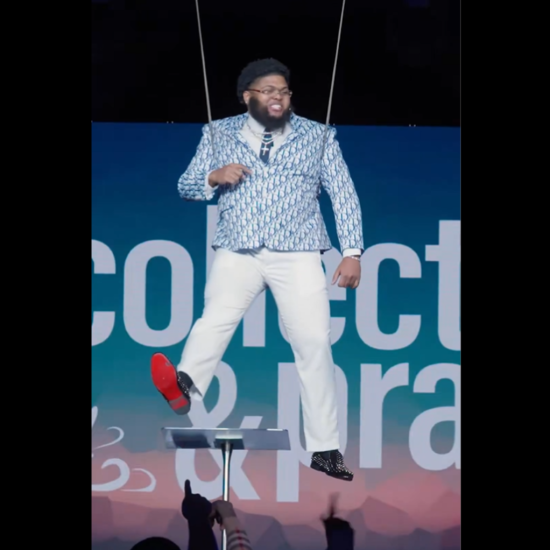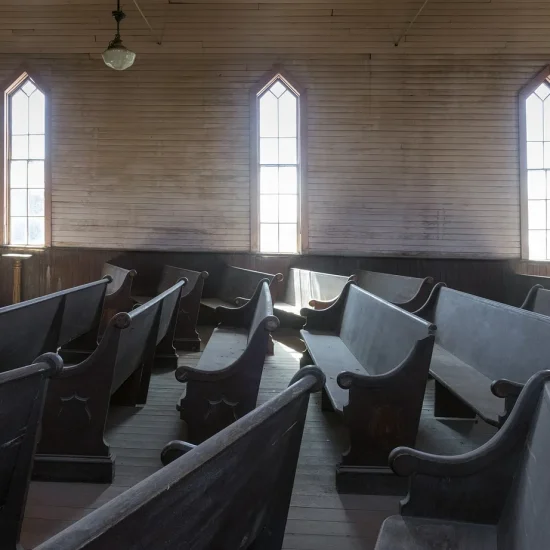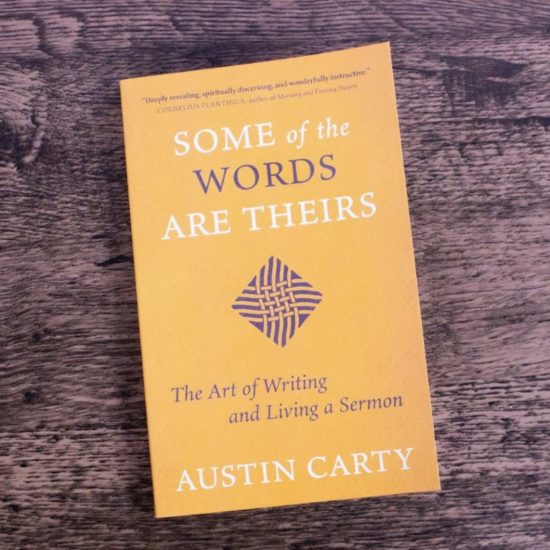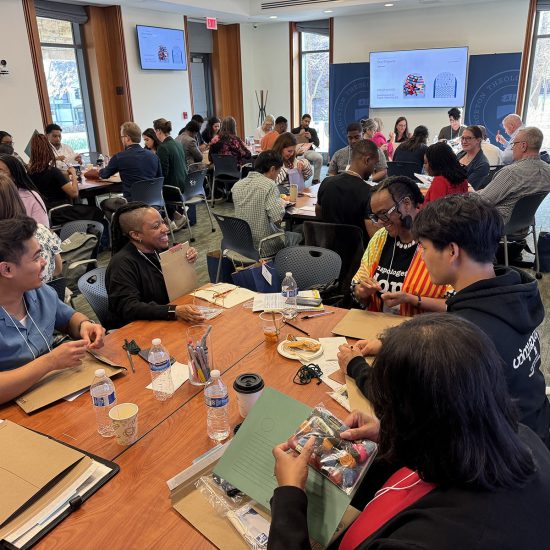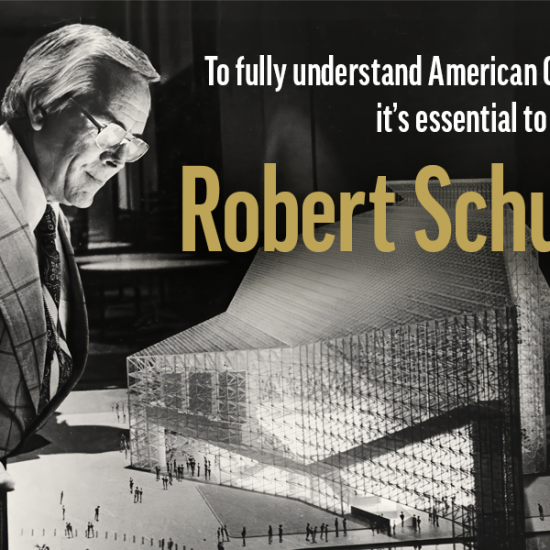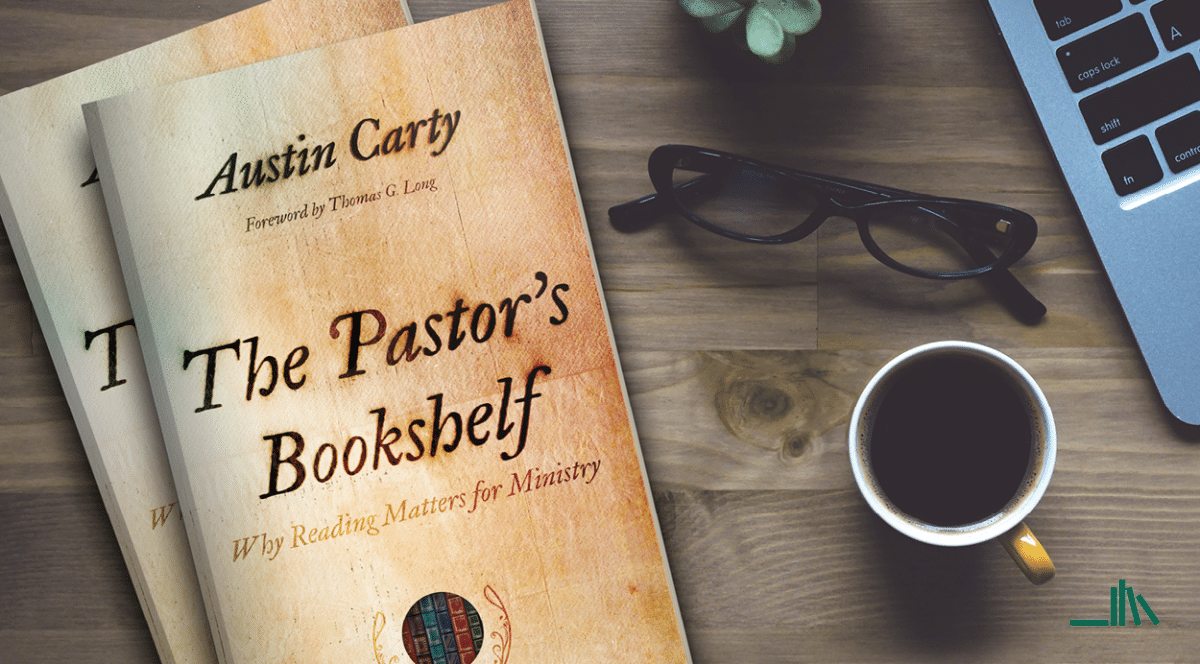
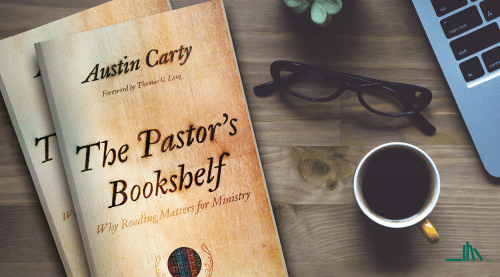
THE PASTOR’S BOOKSHELF: Why Reading Matters for Ministry. By Austin Carty. Foreword by Thomas G. Long. Grand Rapids, MI: Wm. B. Eerdmans Publishing Company, 2022. Xiv + 168 pages.
I love to read. As an expression of that love, I’m the chair of a Book of the Year awards program and a regular reviewer of books. I always have several books going at once. I hear word that some clergy are so busy they don’t have time to read. How can that be? How can one get up in the pulpit each week and not be engaged in reading? Is it true that the most recent copyright date on a pastor’s bookshelf coincides with the date of their graduation? Again, I’ve heard that this is truer than one would care to believe. As a pastor myself (now retired) I know busy clergy can be, but shouldn’t we all make reading a central part of our ministry life? Now, I’m not saying they have to read as many books as I do each year, but surely they can find time to read at least one book per month. Is that too much to ask?

Robert D. Cornwall
Austin Carty is one who believes every pastor should read and read widely. It’s a message that he shares in his book The Pastor’s Bookshelf: Why Reading Matters for Ministry. It’s the subtitle that is the key to the book and its message. Carty is the pastor of Boulevard Baptist Church, a congregation in Anderson, South Carolina affiliated with the Cooperative Baptist Fellowship. Before becoming a pastor he was a high school English teacher, which helps account for his insistence on the need to be a reading pastor.
When it comes to reading, Carty wants clergy to know that only reading ministry-related books is not a sufficiently healthy diet. While he suggests we read a wide variety of books, he puts a special emphasis on reading fiction. Even as my food diet is not sufficiently balanced, as my physique will attest, I will confess that despite reading over a hundred books a year, I don’t read as much fiction as I should. Now, I have my excuses (much of my reading is for review plus I enjoy reading theology), I know that I need to stop and read a few more novels and short stories into my reading diet. Of course, I said the same thing after reading and reviewing for the Christian Century Cornelius Plantinga’s book Reading for Preaching: ThePreacher in Conversation with Storytellers, Biographers, Poets, and Journalists. Having read Carty’s book, I am going to try to add more fiction to my reading diet.
With this confession offered, I will get to the heart of Carty’s message. He wants to impart to us a word of wisdom about why reading matters for ministry. He starts by addressing the concern shared by many about devoting significant time to reading. That includes devoting work time to reading. He tells a story about how he felt guilty and hoped no one would see him reading Dostoevsky’s The Idiot. Despite the sense of guilt at that moment, with time he realized that spending office time reading fiction was actually a good use of time. That is because reading fiction not only made him a better pastor but also a better person. Having come to this conclusion, Carty wants to give us “permission to read freely.” He writes in the introduction that despite the feeling of guilt about using “ministry time” to read, he “knew in my gut that reading books—books of all genres—would somehow sharpen my skills as a practicing minister” (p. 2). That has proven true in his life, so he wants to pass on that word to the rest of us.
Carty divides his book into three sections. He titles Section One “All the Reading We Don’t Remember.” In this section he wants us to know that while reading informs, that’s not the ultimate purpose of our reading. Rather reading widely serves the purpose of formation. We might not remember everything we read but what read becomes part of a reservoir that informs how we view the world, the church, and ministry. With that in mind, he begins with reading as formation in chapter one, such that our reading forms in us a sense of wisdom or even gravitas. Having made that point he moves on in chapter two to contrast formation with information. Here is where Carty imparts the wisdom that the most important element of our reading isn’t remembering what we read. Taking time to read is an end in itself. The point he wants to make with this contrast between formation and information is that if gaining information is the point of our reading, then our inability to remember everything we read would suggest that reading is not a good use of time. I find this helpful since I can’t remember everything I read (I’m not Commander Data after all). Having said this, reading for information does have its place, which is the subject of chapter three. and from there speaks of information because reading will inform. The point here is that while information is valuable it’s not ultimate. Having laid out this contrast between formation and information, Carty is ready to proceed in his focus on reading as formation, with a discussion of developing wisdom through reading (chapter 4). He writes of wisdom, which comes from a broad reading program, that “it is about one’s capacity to discern the bigger picture; to see beyond the present moment with its immediate concerns and anxieties; to distinguish between an impulsive reaction and a measured response” (p. 48). Not only does reading contribute to wisdom, but it also contributes to “Learning to Love” (chapter 5). Reading opens our eyes and ears and hearts to others through their stories.
If Section One argues for the value of reading for formation and not just information, Section Two comes back to the claim made by many clergy that they simply don’t have time to read. The view of many is that reading is a luxury. If I had time I would read! Carty doesn’t buy this argument so in Section Two, which he titles “Not Just a Luxury,” offers a compelling answer to the oft-heard claim. In response, he argues that reading is not a luxury, but rather it is a necessity. Therefore, clergy are called to read for ministry. Reading, he argues “forms us specifically as ministers, sharpening our vocational skills and greatly expanding our pastoral range.” (p. 65). As in Section 1, Carty demonstrates this truth by telling his own story. He shares that through our reading we discover how we can be “more effective preachers, pastoral caregivers, vision-casters, and organization leaders.” With this in mind, he has chapters on each of these four elements of ministry. What distinguishes Carty’s book from Plantinga’s earlier book is that while Plantinga focuses on reading for preaching, Carty expands the range of application. Thus, I recommend reading the two books in tandem, as both offer extremely helpful words of wisdom for clergy.
While Section 1 speaks of the formation of wisdom and love as the foundation for ministry and devotes Section 2 to speak of reading for effective ministry, in Section 3, Carty focuses on how reading contributes to our lives as clergy. He offers here ways in which we can incorporate reading into our busy lives. First of all, Carty argues that it’s okay to read in the office during office hours. Don’t feel guilty when someone catches you reading a work of fiction (it doesn’t have to be Dostoevsky). However, we shouldn’t limit our reading to that timeframe. One of the important suggestions he makes in the book is that we should view our reading in terms of a pastoral visit. That is, just as we call upon our members, books can be recipients of our pastoral visits. In the course of our reading as pastoral visits, we learn and grow and become formed as people and as pastors. He also speaks of reading as a spiritual discipline (by that he means reading that includes but is not limited to the Bible or even religious books. He believes books, in general, can feed our spirits). He speaks as well of reading with a proper spirit. That is, we should read with humility and receptively. He writes that “No matter how much—or how widely—one reads, if one is not reading with a charitable eye toward the author, along with a curious disposition toward the material one is reading, one will not be formed in the meritorious ways this book is suggesting” (p. 121). Of course, the question comes up, how do we organize what we read. Here again, Carty offers only his own experience. So, he shares how he marks up books with a specific code and then adds the notes to a larger Word document that is searchable using the code. Perhaps that will work for you. Finally, he speaks of “reading Scripture as a Pastor-reader.” Yes, reading Scripture is part of our reading experience as clergy if we are to be true pastor-readers. Scripture forms our language and identity. He suggests that the reason he ended with this chapter rather than beginning with it is that he wanted to foreground the other forms of reading, knowing that many pastors read Scripture but fail to read broadly. He wants us to read broadly while also reading Scripture, such that this isn’t a choice between broad reading and Scripture reading. They go hand in hand.
Carty’s book isn’t lengthy. For those clergy worried about getting bogged down before embracing a new pattern, don’t worry, it won’t take you that long to read The Pastor’s Bookshelf. Then you can begin implementing his suggestions. I hope those clergy who struggle to make room for reading will see in Carty’s book a word of permission. It’s important to read broadly for the good of the ministry and our lives and it’s okay to spend “ministry time” reading. And if your congregational leaders are concerned about your taking time out to read in the office, why not pass the book on to them and have them read it. So, once again don’t feel guilty if you’re caught reading a book of fiction during office hours. Know that you are being formed to be a better person and a better pastor!
This review originally appeared on BobCornwall.com.
Robert D. Cornwall is an ordained minister in the Christian Church (Disciples of Christ). Now retired from his ministry at Central Woodward Christian Church (Disciples of Christ) of Troy, Michigan, he serves as Minister-at-Large in Troy. He holds a Ph.D. in Historical Theology from Fuller Theological Seminary and is the author of numerous books including his latest books: Called to Bless: Finding Hope by Reclaiming Our Spiritual Roots (Cascade Books, 2021) and Unfettered Spirit: Spiritual Gifts for the New Great Awakening, 2nd Edition, (Energion Publications, 2021). His blog Ponderings on a Faith Journey can be found at www.bobcornwall.com.

